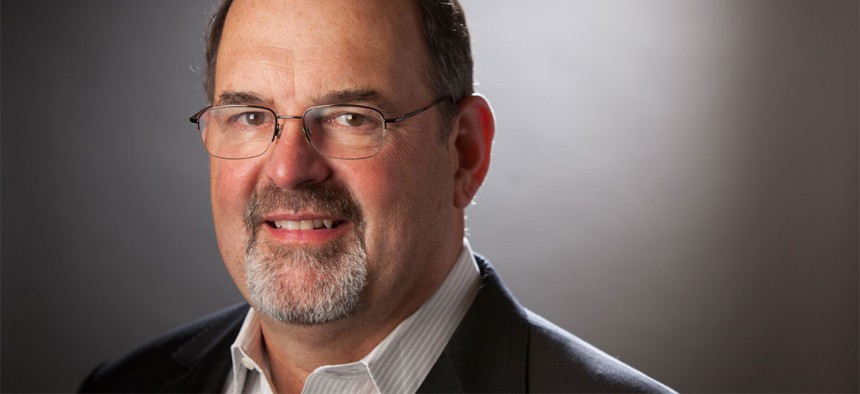Federal CIO Tony Scott Expects Some 'Resistance' on Federal IT Reform Law

Federal CIO Tony Scott VMware
Scott became the government’s top techie in February and it hasn’t taken long for him to realize things work very differently in government.
What a nine weeks it’s been for new federal Chief Information Officer Tony Scott.
Fresh off CIO gigs at a who’s-who of private sector companies, including Walt Disney Company, Microsoft and most recently VMware, Scott became the government’s top techie in February and it hasn’t taken long for him to realize things work very differently in government.
“I took civics class like most of us did,” Scott said Tuesday at an event hosted by AFFIRM in Washington, D.C. “It doesn’t tell you how government really works.”
Scott’s mixture of dry humor and willingness to speak publicly -- despite having only two months under his belt -- is a refreshing change from rinse-and-repeat speeches and mind-blowingly boring PowerPoint presentations of previous top tech officials.
The meat of Scott’s dialogue -- he keynoted the event and participated on a panel -- revolved around the Federal IT Acquisition Reform Act, a newly enacted law tasked with reforming the way agencies spend money on technology. Scott was frank in his remarks, admitting he didn’t know much about it when he came to government and that guidance from the administration may be delayed.
“I didn’t know a lot about FITARA when I interviewed for the job,” Scott said. “It’s one of those things that happened during the journey, and when I read FITARA, I thought, ‘This is pretty good.’ In the nine weeks or so since I’ve been on the job, I’ve come to appreciate how good it really is.”
Scott noted that FITARA really only codifies “a conversation that we expect would take place between department secretaries, leaders of each agency and the CIO and his or her team.” What might seem like common sense to someone from the profit-driven private sector, though, has been missing all too frequently at the mission-driven federal level. Without that encompassing dialogue, bad things happen.
“In my career, I’ve seen examples where there isn’t that kind of alignment, and not only do you not get good ID, but the business suffers as well,” Scott said. “I can only guess, but I’m pretty sure the same thing is true in government.”
Certainly, the Government Accountability Office and inspectors general across government would agree. In government, most CIOs have lacked authority -- referred to as the “power of the purse” -- despite owning IT initiatives in their respective departments. FITARA demands budget authority for CIOs, which means they have the power to shift dollars to new investments or squash tech efforts that aren’t producing results.
To Scott, that’s a particularly powerful ramification of FITARA, especially given where the majority of the $86 billion IT budget spend goes.
“Eighty percent of our spend is on keeping the lights on the stuff we already have,” Scott said. “I’m particularly concerned about that 80 percent -- we’re on a good path with the 20 percent. I want to focus on how to move the needle on the 80 percent, and FITARA can help us there in a big way.”
Scott agrees with many who expect some “resistance and rub” to FITARA -- component CIOs butting heads with headquarter CIOs over projects, for example -- and he’s aware the Obama administration that appointed him will be ushered out in a little less than two years.
Governance, Scott said, will be key to ensuring the law of FITARA is carried out across government, regardless of who the key players are in each agency.
“The first thing it to make sure the right governance gets in place in each of the organizations, both at the agency and sub-component level,” Scott said.
Scott is keenly aware, too, of FITARA’s key role to ensuring IT continues to keep pace in government. If IT is the backbone of federal organizations today, its importance is only going to grow as digital, mobile and cloud technologies evolve.
“We’re at a crisis point in our country, not just with federal IT, I’m talking about IT broadly,” Scott said. “We’re at this incredible inflection point in the whole industry with speed, agility and also security. If we don’t get it right, I don’t like the consequences.”






